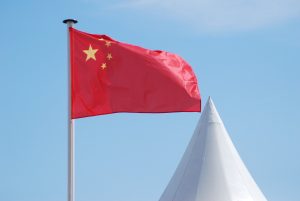On May 27, Canada’s British Columbia’s Supreme Court ruled that the fraud charges against Meng Wanzhou meet the key Canadian extradition standard, bringing the Huawei chief financial officer and daughter of Huawei’s founder a step closer to extradition to the United States.
China’s Foreign Ministry spokesperson Zhao Lijian called the case against Meng a “serious political incident.” The Chinese Embassy likewise branded the Canadian’s court’s decision an “entirely a grave political incident,” stating that “the purpose of the United States is to bring down Huawei and other Chinese high-tech companies, and Canada has been acting in the process as an accomplice of the United States.”
Canada was struck by trade sanctions and suspended consular visits following Meng’s arrest in 2018. Former Canadian diplomat Michael Kovrig and Canandian businessman Michael Spavor were both detained in what was widely seen as retaliation for Meng’s arrest; Canandian Prime Minister Justin Trudeau calls their continued detention “arbitrary.”
On May 22, Trudeau addressed China’s accusations: “Canada has an independent judicial system that functions without interference or override by politicians. China doesn’t work quite the same way and doesn’t seem to understand that.” Canada’s Minister of Foreign Affairs François-Philippe Champagne also stressed the independence of the country’s judicial system.
A parallel case of Beijing’s stern belief in a foreign executive branch’s far-reaching powers was in 2010, when the Nobel Peace Prize was handed to Chinese dissident Liu Xiaobo. The Norwegian government’s outspoken opposition failed to sway the Nobel Committee’s decision. China thereafter froze its relations with Norway and sanctioned the Scandinavian kingdom’s prized salmon experts for six years, disregarding the Nobel Committee’s independence and nongovernmental institution status.
The unwillingness to recognize the independence of Canada’s judicial branch and the Nobel Peace Prize committee reflects China’s unfamiliarity with pluralistic political structures and inability to understand the separation of powers enshrined in the constitution of democracies. After all, the Chinese Communist Party (CCP) ardently believes in the centralization of power and dictates the processes of China’s legislature and executive branch. The CCP approves all judicial appointments and personnel decisions in the judiciary. As remarked by Paul Evans at the University of British Columbia, “The idea of a completely independent judiciary is not part of their reality and what they believe in … The line between law and politics is permeable, it’s not firm.”
Evans’ remark was scoffed at by China’s state media People Daily, which through “XiaKeDao” — the paper’s social media account for guiding popular opinion — claimed that the political element in Meng’s case is indubitable given both U.S. and British media have viewed the case as part of the U.S.-China competition.
The propensity for the Chinese government to frame conflicts in a purely political manner, through the lens of international power struggle, projects a belligerent, assertive China that forces nations to choose between the United States and China. On top of that, by neglecting independent attributes and differences between political systems, China risks alienating foreign moderates by holding a whole nation accountable for the actions of particular groups that don’t abide by China’s interests. This constricted and inflexible political mindset has fueled the image that China is an unreliable partner and would have negative repercussions for China’s competition with the United States.
For example, South Korean companies began shifting their supply chains and investment out of China after the THAAD fallout in 2017. Beijing boycotted the Korean corporation Lotte for providing land for the deployment of the missile system, despite the transaction occurring under the order of the South Korean government.
China also alienated Taiwan’s population and hindered the Kuomintang (KMT) – the Beijing-friendly opposition party – from winning the 2020 election by applying punitive measures toward Tsai Ing-wen and her Democratic Progressive Party for supporting the Hong Kong protests as well as her reluctance to bring the island closer toward “unification.” Ironically, Taiwan registered a record number of tourists last year despite Beijing’s travel ban in August. Beijing’s military threats have not prevented Tsai’s approval ratings from reaching the highest point since her election.
As the United States has become increasingly adamant in a power struggle with China, Beijing cannot expect nor afford to force independent countries to side with China without respecting their respective interests and governance systems. That is especially the case amid the growing international criticisms and suspicion of China’s handling of the COVID-19 outbreak. A top Chinese think tank warned the country’s leaders that its global image has plummeted to the lowest point since the Tiananmen incident. Canadian Ambassador to China David Mulroney has said, “There has been a global awakening prompted by the pandemic that China is an unreliable partner.”
In a more concrete example, the U.K. now plans to phase Huawei out of Britain’s 5G networks after anti-China hawks were empowered by the Hong Kong protests and the COVID-19 crisis.
While Hong Kong and Huawei maybe be among China’s core interests, punitive measures that only conform to Beijing’s logic of power struggle and constricted view of governance models came off as unwarranted and play into the rhetoric of anti-China hawks. China’s current approach only serves to turn moderate politicians into hawks and push its potential partners into the United States’ orbit.

































